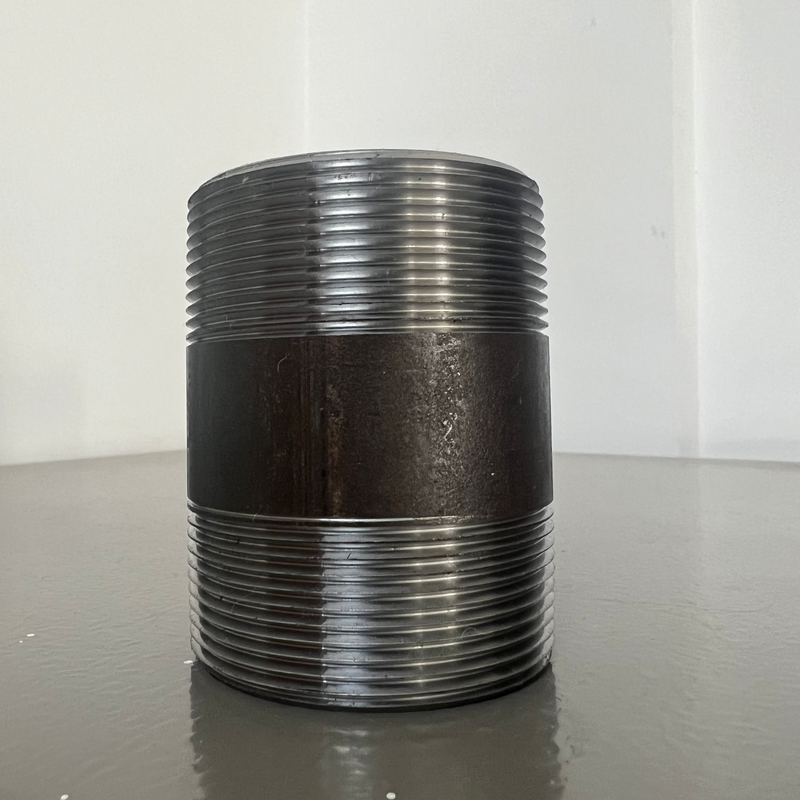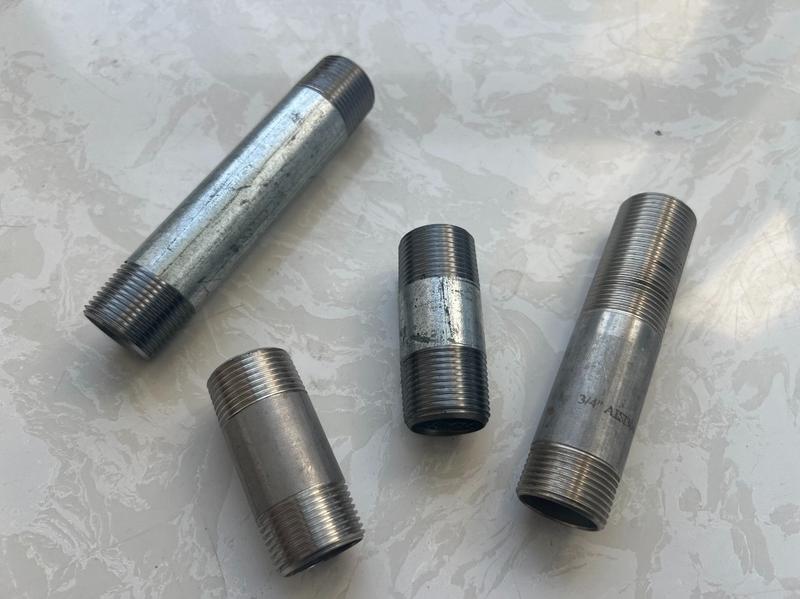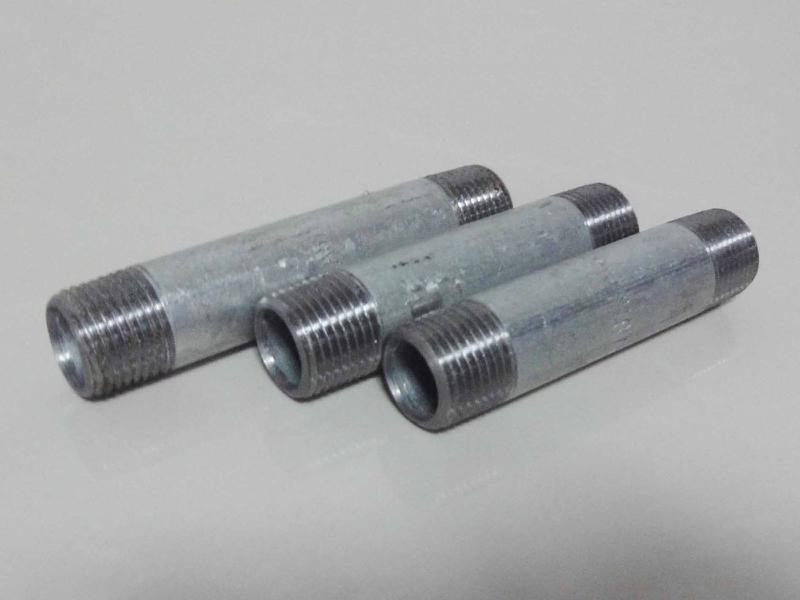Two commonly considered options for selecting materials for a piping system are black iron and galvanized steel. While both have specific applications and benefits, understanding their differences is key to making the right choice for your project.
1. What is Black Iron?
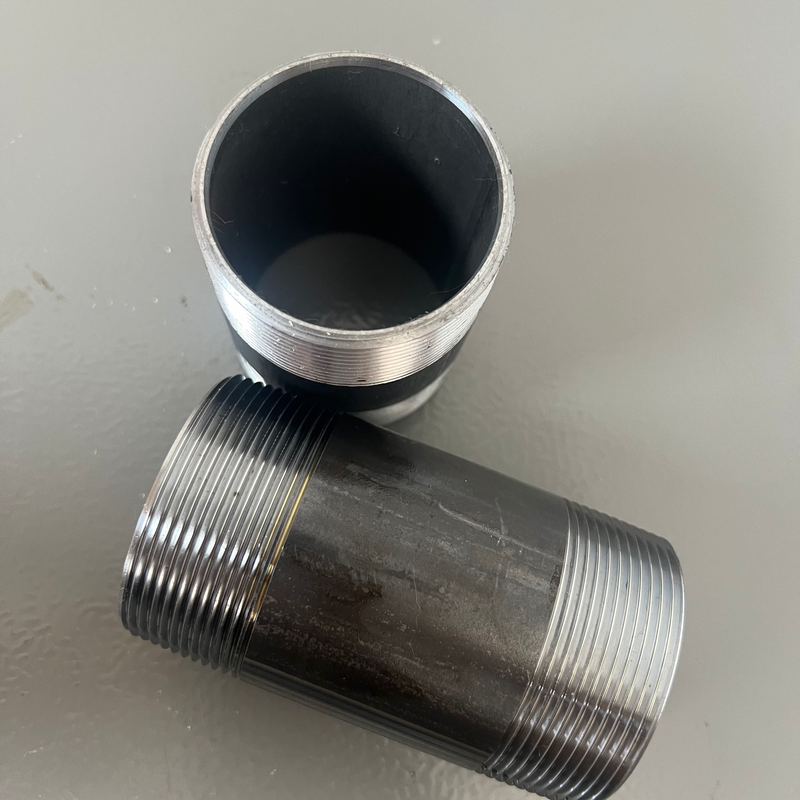 Black iron is a carbon steel without coating, giving it a distinctive dark appearance. It is not pure iron but steel with a specific amount of carbon. Its strength and durability make it popular for gas and oil transport applications. Black iron pipe is economical and durable, has lower corrosion resistance, and is widely used in dry and low-corrosion applications. When used in environments that require extra protection, applying a coating on the surface of the black iron pipe can extend its life.
Black iron is a carbon steel without coating, giving it a distinctive dark appearance. It is not pure iron but steel with a specific amount of carbon. Its strength and durability make it popular for gas and oil transport applications. Black iron pipe is economical and durable, has lower corrosion resistance, and is widely used in dry and low-corrosion applications. When used in environments that require extra protection, applying a coating on the surface of the black iron pipe can extend its life.
-
Advantages of Black Iron
Strength: Its robust construction is ideal for high-pressure environments.
Cost-Effective: Black iron is typically less expensive than galvanized steel.
Gas Transport: Perfect for carrying gas, as it doesn't have a zinc coating that might react with the transported material.
-
Common Applications
Natural gas and propane systems
Fire sprinkler systems
Industrial and commercial settings requiring strong, high-pressure pipes
2. What is Galvanized Steel?
Galvanized steel is carbon steel coated with a layer of zinc to protect against corrosion. This additional coating makes it more suitable for water transport and outdoor applications.
-
Advantages of Galvanized Steel
Corrosion Resistance: The zinc coating prevents rust and extends the pipe’s lifespan, especially in wet environments.
Versatility: Suitable for both indoor and outdoor applications, including exposed piping.
Aesthetic Appeal: The shiny zinc coating provides a cleaner, more polished appearance.
-
Common Applications
Potable water systems
Outdoor piping and fencing
Applications exposed to humidity or frequent contact with water
3. Key Differences Between Black Iron and Galvanized Steel
When choosing between black iron and galvanized steel, understand their key differences in material properties, applications, and advantages. Use black iron pipe and fitting for indoor, high-heat applications like gas lines or fire systems. Choose galvanized steel for outdoor or moisture-prone environments where corrosion resistance is essential.
-
Black Iron
Black iron pipes and fittings have no protective layer and are prone to rust and corrosion over time.
Black iron lacks corrosion resistance and is suitable only for indoor use or exposure to moisture in minimal applications.
Strong and durable but less resistant to environmental wear and tear without additional protection.
Black pipes and fittings are commonly gas lines due to their ability to withstand high temperatures.
Black iron has a dark, matte finish and a rough texture.
Black iron requires regular maintenance, and protective coatings (like paint or oil) prevent rust.
Black iron pipes and fittings are generally cheaper due to their simplicity and lack of coating.
They are best suited for dry, controlled environments where rust is not a concern.
-
Galvanized Steel
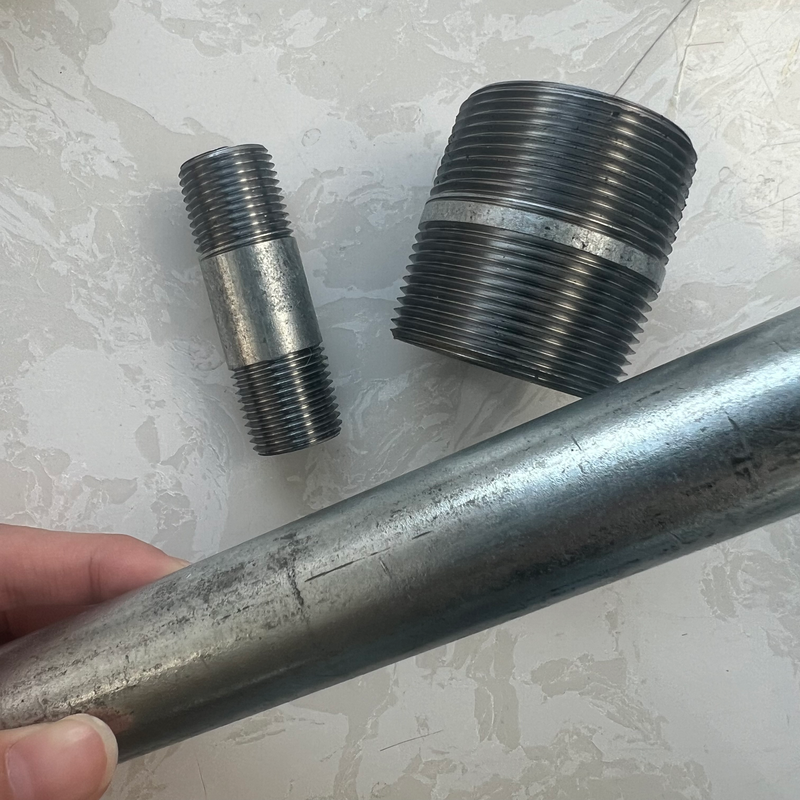
Coated with a layer of zinc through a galvanization process. The zinc coating provides excellent corrosion resistance, especially in outdoor and humid environments.
The galvanized coating provides strong rust and corrosion resistance, making it suitable for outdoor use, plumbing, and moist environments.
Galvanized pipe and firrings are durable and long-lasting, with added protection against corrosion, giving it a longer lifespan in harsh conditions.
Suitable for environments where exposure to moisture or weathering.
The galvanized coating on pipes and fittings has a shiny silver finish, offering a clean and polished look.
Galvanized pipes and fittings are low maintenance, as the zinc coating provides inherent rust protection.
Slightly more expensive because of the added galvanization process.
Suitable for outdoor and humid environments due to its corrosion resistance.
4. Choosing the Right Material
Your choice between black iron and galvanized steel depends on the specific requirements of your project:
For Gas Systems: Black iron is the superior choice due to its lack of zinc coating, which might cause clogging in gas lines.
For Water Systems: Galvanized steel is the go-to option, as it resists rust and maintains water quality.
For Outdoor Use: Galvanized steel is better suited to withstand weather conditions and humidity.
5. Maintenance Considerations
Black Iron: Requires regular inspection for rust and may need periodic painting or coating in moist environments.
Galvanized Steel: Minimal maintenance, though the zinc layer can eventually wear off, especially in high-salt environments.
6. Environmental Impact
Galvanized steel reduces resource waste and service life long, and zinc coating makes it less environmentally friendly to produce and recycle than black iron. However, the galvanized steel extracted zinc in processing and coating (such as hot-dip galvanizing processes results in energy consumption and emission reduction.
Black iron processing is simple but requires little energy. Because of its short life, it is frequently replaced and produces more garbage, especially in corrosion environments.
7. Conclusion
Both black iron and galvanized steel have their strengths and limitations. Black iron excels in gas and high-pressure systems, while galvanized steel is ideal for water transport and outdoor applications. Carefully evaluate the environmental conditions, budget, and specific system requirements to make the best decision for your needs.
